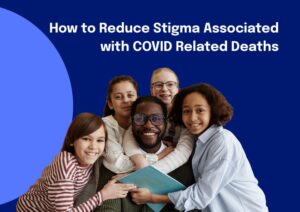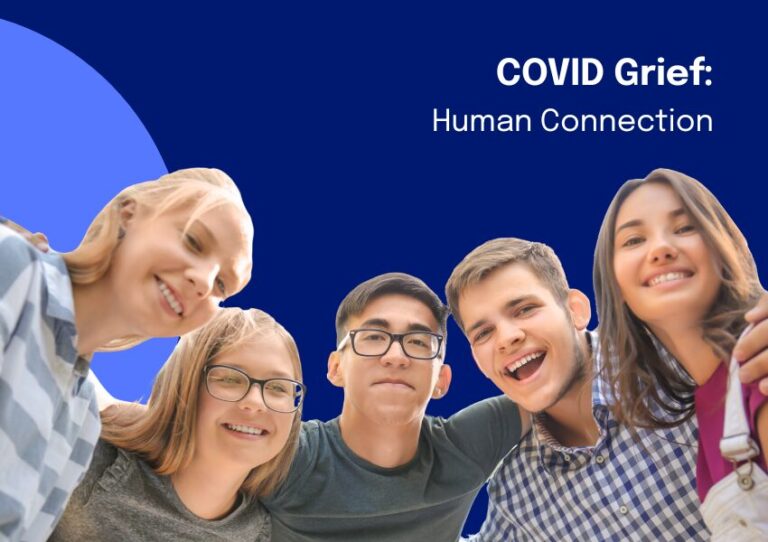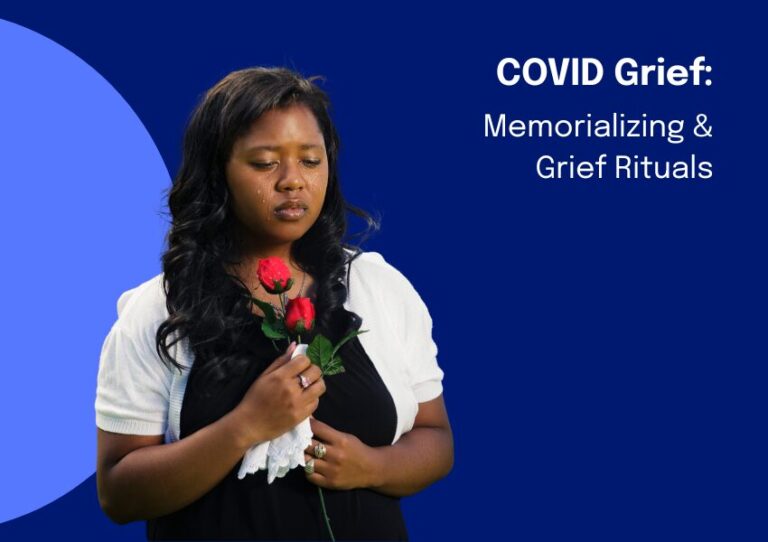How to Reduce Stigma Associated with COVID Related Deaths
 A new trend has emerged within schools and communities: a prominent stigma related to COVID deaths. The aftershocks of the pandemic have surfaced in the form of hurtful comments and behaviors towards children grieving the death of a loved one to COVID. Several educators and parents have reported hearing comments along the lines of:
A new trend has emerged within schools and communities: a prominent stigma related to COVID deaths. The aftershocks of the pandemic have surfaced in the form of hurtful comments and behaviors towards children grieving the death of a loved one to COVID. Several educators and parents have reported hearing comments along the lines of:
“Why wasn’t your mom vaccinated?”
“Why didn’t your dad wear his mask more?”
“I killed my mommy” – said by a child who had COVID that spread to parent
These deeply wounding remarks are a result of misinformation and misunderstanding made worse by the political polarization related to COVID, mask-wearing, and changing health and safety policies. Some families report that their grieving was often overshadowed by minimizing comments and theories about the cause of death.
Bereavement expert Kenneth Doka refers to this type of stigmatized bereavement as disenfranchised grief: “a loss that’s not openly acknowledged, socially mourned or publicly supported,” Disenfranchised grief may cause people to feel they don’t have the right to express their loss openly or fully because of the cultural stigma about how the person died. This stigma ultimately shifts responsibility from the cause of death to the person who died. Children and families who are grieving deaths from suicide, murder, and substance use disorder can experience a similar disenfranchised grief.
How to support grieving families and reduce stigma:
Connect:
Try privately reaching out to the family to offer your condolences and explore strategies to best support the children within the school, sports team, and community. Connect the family to local bereavement support counselors, groups, and camps. The Eluna Resource Center can help by providing personalized support and identifying local resources for children and families.
Respect:
Every family has a unique preference for honoring their loved one. Some families are protective and careful about which details and what information to share. Respect their privacy and refrain from discussing the death without first consulting with the family.
Correct:
Address stigmatizing questions and comments made by family, friends, or peers. One possible response to a child who has asked a stigmatizing question:
“It sounds like you are looking for some ways to support your friend. Instead of asking what & why questions, it’s helpful to ask how they are feeling. Try offering a hug, a thoughtful card, or comforting item. How would you like to show your support?”
Direct:
Provide guidance to children on how to appropriately address and support a person grieving a COVID-related death:
What not to say:
- “Did he have preexisting conditions?”
- “Was she vaccinated?”
- “Did they wear a mask?
- “How did they get COVID?”
- “Be strong.”
- “I know how you feel.”
- Nothing – it’s important to reach out and stay connected. Try one of the following…
What you can say:
- “How are you?”
- “I’m here if you want to talk.”
- “It’s okay to cry.”
- “I’m sorry you are hurting.”
- “Would you like to take a walk and we can talk about it?”
- “May I give you a hug?”
If the COVID-related death has become widespread knowledge and is causing conflict or harm, it can be strategically addressed with small groups of children using Eluna’s Facts-Feel-Heal model:
- FACTS: Share accurate information about the COVID virus and how it spreads. Educate children about the hurtful impact of COVID stereotypes and stigma.
- FEEL: Help children build empathy for peers and families grieving the death of a loved one.
- HEAL: Brainstorm creative and compassionate ways to show support to grieving friends and peers without reinforcing stereotypes and stigma. Check out How to Help a Grieving Friend designed for kids by Ele’s Place.
It takes a conscious community effort to support grieving families while reducing the stigma related to COVID deaths and Eluna is here to help. Click here for a consolidated list of COVID resources and don’t hesitate to contact us directly for additional support.
This special resource is made possible through a partnership with the Brave of Heart Fund, founded by the foundations of New York Life and Cigna, and administered by E4E Relief.

